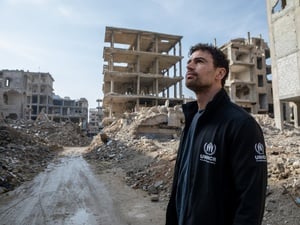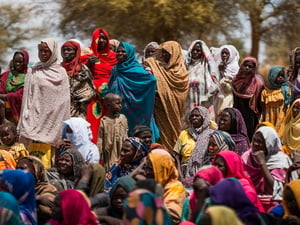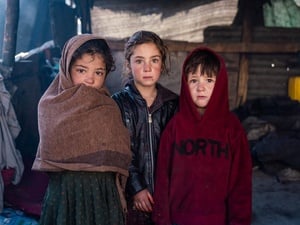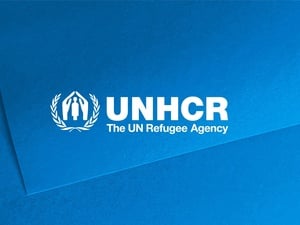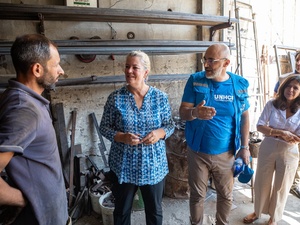Syria situation regional update
Syria situation regional update
In Syria, UNHCR is progressing in major effort to provide aid to up to 500,000 people by the end of this year despite recent disruptions to operations due to insecurity.
To date, UNHCR family aid packages have been provided to some 59,000 families (295,000 people). The emergency packages contain non-food humanitarian supplies ranging from blankets and clothing to cooking kits and jerry cans. These are aimed at helping families meet basic needs during the coming winter.
Unfortunately, recent deliveries have been very difficult. Last week, humanitarian operations were disrupted on at least two days in Damascus because of insecurity. Similar difficulties were experienced by staff working in Aleppo, and we are temporarily withdrawing staff from north-eastern Hassakeh governorate. Insecurity over the past few weeks has also resulted in loss of aid supplies, including some 13,000 blankets that burned in a Syrian Arab Red Crescent warehouse in Aleppo that was apparently hit by a shell. In addition, a truck carrying 600 blankets was hijacked on its way to Adra, outside Damascus.
Nevertheless, progress has been made. Yesterday, we were able to deliver nearly 5,000 mattresses and 500 hygiene kits to Aleppo, Hassakeh and Adra. We also continue with the provision of education materials and cash assistance for families. In Hassakeh, 10,500 displaced children have received individual school kits. And cash assistance of $150 per family has been provided to nearly 12,100 displaced families in Al Nabek (rural Damascus) and in Hassakeh Governorate.
UNHCR has some 350 staff in Syria, working in three offices - Damascus, Aleppo and Hassakeh. Up to 2.5 million Syrians are estimated to be in need of humanitarian assistance.
REGIONALLY: The number of Syrian refugees registered or awaiting registration throughout the surrounding region has now surpassed 407,000 and continues to climb. There are tens of thousands more Syrians around the region who have not registered. Many are expected to come forward for registration and assistance in the coming weeks as winter sets in and their resources run out.
TURKEY: The past week saw increasing arrivals in Turkey, Jordan and northern Iraq. Many of the estimated 8,000 to 9,000 Syrians reported to have entered Turkey overnight last Thursday around the Ceylanpinar border crossing are now staying with relatives, have moved into camps, or have returned to Syria after the fighting reportedly subsided. As of November 10th, an estimated 115,000 Syrians were in 14 government-run camps in Turkey, with another 60-70,000 believed to be living on the local economy. Numbers crossing the border have fallen since late last week, with 2,340 arriving between Saturday and yesterday and 1,363 returning to Syria.
JORDAN: For the week ending November 10th, Jordan received 4,045 new arrivals, the highest weekly total since September 1st. Last Thursday (November 8th) also saw the highest daily number of arrivals in two months - 879. The number of refugees registered or awaiting registration in Jordan now stands at more than 116,000, more than 70 percent living on the local economy.
The Za'atri refugee camp north of Amman experienced its first heavy rains of the season over the weekend. According to our staff, there was only minor disruption with 38 tents being moved from flooded areas, and two tents replaced due to damage.
UNHCR engineers and site planners are working with the refugees to improve conditions at Za'atri, including advising on drainage techniques now that the rainy season is here. Tools and coarse rock were provided yesterday to those whose tents are in low lying areas. Rock has already been spread throughout the camp as part of efforts to reduce dust in the dry season and improve drainage in the rainy months. This ongoing work was temporarily disrupted by the rain, which prevented heavy trucks from entering soft areas. Other winter preparations are also continuing in the camp. In the next week, work will begin on providing "porches" and strengthening of the tents to offer better protection against the winter cold. Heaters and other winter supplies are also being provided.
IRAQ: The Kurdistan region of northern Iraq also saw an increase in new refugees for the week up to November 7th with 3,171 Syrian arrivals - predominantly Syrian Kurds. Nearly 1,500 more were registered between Thursday and Sunday. The number of Syrian refugees in Iraq is now more than 50,000, including over 42,000 in the Kurdistan Region (Erbil, Suleimaniya, Duhok) and another 8,400 in Anbar and other governorates to the south.
LEBANON: While the influx of Syrian refugees into Lebanon remains stable, UNHCR is stepping up its efforts to register refugees in need. In the north and south of Lebanon, we continue to register refugees at our centralized registration premises, while also using mobile registration teams to reach those who cannot reach the established centers. In the Bekaa, mobile registration was concluded in Al-Qaa targeting refugees settled in Hermel, Fakeha, Jdeideh, and Al-Qaa. Over 6,000 people were registered in a single week, bringing the number of registered and waiting to be registered refugees in Lebanon to 118,633.
A recent positive development was the Lebanese government's announcement to waive visa renewal fees for Syrian refugees, but the government has also expressed its hope that the international community would help to cover the lost revenue associated with those fees. UNHCR is liaising with the government to ensure that this new policy is implemented throughout the country.
With temperatures now dropping in the mountainous north and Bekaa valley, UNHCR, UNICEF, the World Food Programme, Danish Refugee Council, World Vision, Caritas Migrant Center and Makhzoumi Foundation have focused distribution efforts on providing winter items such as mattresses, blankets and winter clothes. UNHCR, UNICEF and Save the Children also selected 35 schools around Lebanon who received fuel vouchers to help warm schools during winter.
Shelter is still a pressing priority in that regard. Efforts are continuing to rehabilitate collective shelters and host family homes; erect prefabricated houses and temporary shelters; and provide cash to landlords and to vulnerable refugees unable to pay their own rent. However, it is urgent that we strengthen these efforts in conjunction with the Government of Lebanon to improve living conditions for refugees in Lebanon, while enhancing preparedness in the case of a larger influx.
For further information on this topic, please contact:
- In Amman (for general Syria enquires): Ron Redmond (Regional Spokesman) on mobile +962 79 982 5867
- In Geneva: Adrian Edwards on mobile +41 79 557 9120
- Sybella Wilkes on mobile +41 79 557 9138


